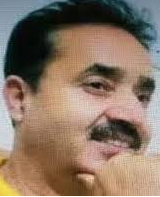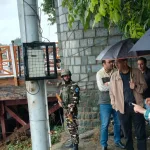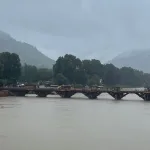There was once a time, not long ago in the larger landscape of memory, when a Kashmiri Pandit marriage was not just an event—it was a rite of passage rooted in culture, tradition, and collective spirit. It was a celebration that unfolded with simplicity, grace, and a kind of unspoken sanctity that transcended show.
No invitations printed in gold foil, no themes decided by designers, no curated menus planned by catering companies, no live bands or DJs with glittering lights. And yet, what existed then was something far deeper—a sacred communion of families and community, bound by ritual and a sense of belonging.
Today, that memory feels like a faded photograph, preserved in sepia, placed quietly in the back corner of our collective conscience. What remains is the question: has the Kashmiri Pandit forgotten his roots—roots once brimming with wisdom, humility, and warmth that nourished traditions of immense cultural and emotional value?
To say that the community has turned its back on tradition would be unfair, and yet to say it has preserved its roots unshaken would be dishonest. Somewhere between displacement and adaptation, between longing and survival, a quiet erosion has taken place. The exodus of the 1990s ripped more than just people from their homes—it tore culture from its cradle. And like a tree uprooted, when it finds new soil, it must grow again. But whether it blossoms with the same flowers is another question.
Marriage, in any culture, is a mirror to society. It reflects what a people hold sacred, what they celebrate, and how they see themselves in the continuum of time. A Kashmiri Pandit marriage used to be a deeply rooted affair—three days of warmth, rituals, and collective joy. The preparations would begin weeks in advance, not with flashy planning, but with lists penned on reused paper, whispers exchanged between elders, and a quiet buzz in the family courtyard.
The entire Baradari—the extended family and community—would become one breathing organism. From cooking to serving, from arranging to executing, every detail was managed meticulously by people who belonged, who had a shared stake in the joy of the occasion.
The menu—often vegetarian—was itself a tribute to the culinary traditions of the land. There would be an abundance of vegetable dishes, each cooked with care, each dish known not by exotic names but by its aroma and simplicity: nadru yakhni, dum aloo, chok wangun, matschgand, and the ever-loved rajmash.
Food would be served on neatly arranged pattal leaves or metal thalis, not buffet-style in impersonal lines. There was no rush, no hired crew with caps and gloves, no hosts standing at the corner calculating headcounts. It was a sacred meal, shared with humility, where service was an act of love, and not a job outsourced to agencies.
The rituals, too, were not performances. They were intimate, soaked in meaning and sanctity. The pheras around the sacred fire were not drowned by music or LED screens. The songs sung were not played from speakers but hummed by the voices of aunts and grandmothers who knew the tunes by heart. The bride’s entry was not choreographed, and the groom’s arrival was not celebrated with blaring beats. What arrived was a bond, not a brand. What walked in was a union, not a show.
Today, the story has shifted. Marriages are now week-long festivals of opulence. Every function has a theme, and every theme has a dress code. The Haldi ceremony is no longer the quiet, turmeric-blessed morning where relatives apply the yellow paste with laughter and blessings. It is now a poolside event, adorned with marigold canopies and sunglasses.
The Mehendi is no longer a room filled with songs and jokes—it is a choreographed celebration with DJs and professional dancers. Then there is the bangle ceremony, the cocktail party, the Sangeet night, the pre-wedding shoot, the post-wedding brunch. Somewhere in all this orchestration, the soul has gone missing.
The food once cooked in large handis by trusted members of the community is now outsourced to gourmet caterers offering menus from Mughlai to Mexican, from Kashmiri Wazwan to South Indian delicacies. The bride and groom wear designer outfits that change with each function—Haldi in yellow, Sangeet in glitter, wedding in grandeur, reception in elegance.
Every moment is captured not in memories, but in drone footage and Instagram reels. And yes, there is a ghar-achun too—the homecoming of the bride—which is no longer the quiet welcoming into the ancestral home, but yet another function, with curated décor and catered food.
One could argue that change is inevitable. That adaptation is a sign of resilience. That Kashmiri Pandits, scattered across the globe, have a right to celebrate in a way that fits their current realities. And all this is true. But the lament remains—if we shed our inheritance in the name of progress, who are we becoming? If what we now celebrate bears no resemblance to what we once held sacred, then what is being preserved? What is being passed on?
The fault lines are many. The exodus from Kashmir was not just a physical displacement. It was a psychological exile. In leaving the land, the community left behind not just homes and hearths, but the ecosystems that nurtured tradition.
It is not easy to maintain community-based rituals in far-flung cities where the Baradari is scattered, where relatives are thousands of miles away, and where survival itself took precedence over culture for years. Slowly, what was once lived became remembered. And memories fade, especially when they are not passed on through lived experience.
And yet, the question remains: was it impossible to preserve the essence, even if the form changed? Could we not have kept the spirit alive, even if the surroundings evolved? Could a Kashmiri Pandit marriage, even in Delhi or Mumbai or Houston or Sydney, not have retained the sanctity, the simplicity, the inner light?
Today, many of the young Kashmiri Pandits no longer speak the mother tongue. They may eat rogan josh, but they do not know how it is cooked. They may wear Pherans on social media, but they do not know what the songs sung at weddings mean. They may celebrate Mahashivratri with pictures, but the deep spiritual meaning behind Herath is often reduced to rituals performed without understanding. This disconnection is not born from malice. It is born from distance. But if the community does not act now to reconnect, that distance may become irreversible.
So who is to be held responsible? Certainly, the political betrayal that led to the mass exodus in 1990 holds the heaviest burden. But there is also responsibility within. Culture does not survive merely by remembrance—it survives by practice.
If we are too eager to replace our traditions with borrowed spectacles, then the loss is self-inflicted. If we forget what our ancestors celebrated, if we trade sacred rituals for fashion trends, if we outsource joy and perform identity like a costume, then we are the ones who bury our roots under layers of pretense.
This is not a cry for regression. It is a plea for balance. It is possible to celebrate in beauty without extravagance. It is possible to adapt without forgetting. It is possible to evolve without erasing. A Kashmiri Pandit marriage can still be a soulful gathering where love is celebrated with dignity and warmth, where rituals are performed with understanding, where food is served with grace, and where community is built, not hired.
The challenge is not to go back in time. The challenge is to carry forward the light of that time. In our quest for modernity, let us not discard the very essence that made us who we are. The branches of culture may sway with the winds of change, but the roots must hold strong. And those roots lie not in the grandeur of venues or the menu of delicacies, but in the simplicity of hearts that once gathered under the chinar trees, to celebrate not just a marriage, but a continuity of values.
To be Kashmiri is to remember. But to be truly Kashmiri is also to live what we remember.
(Author is RK Columnist and can be reached at: [email protected])








